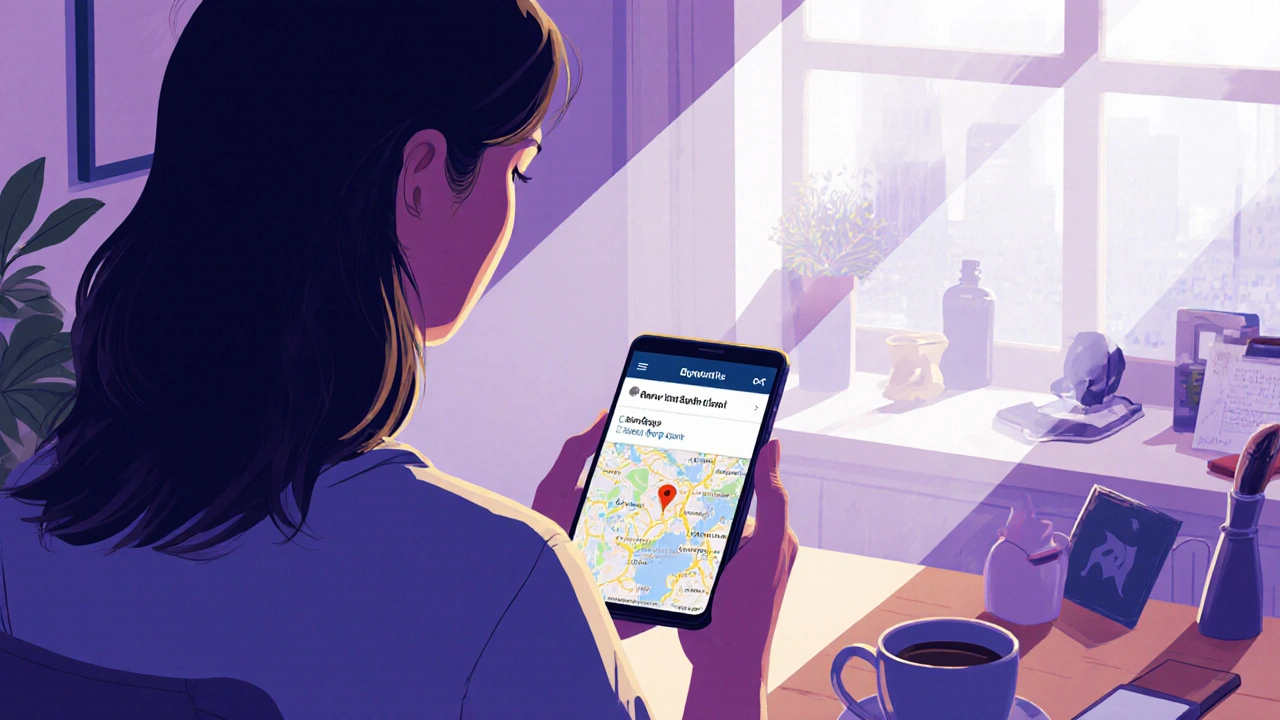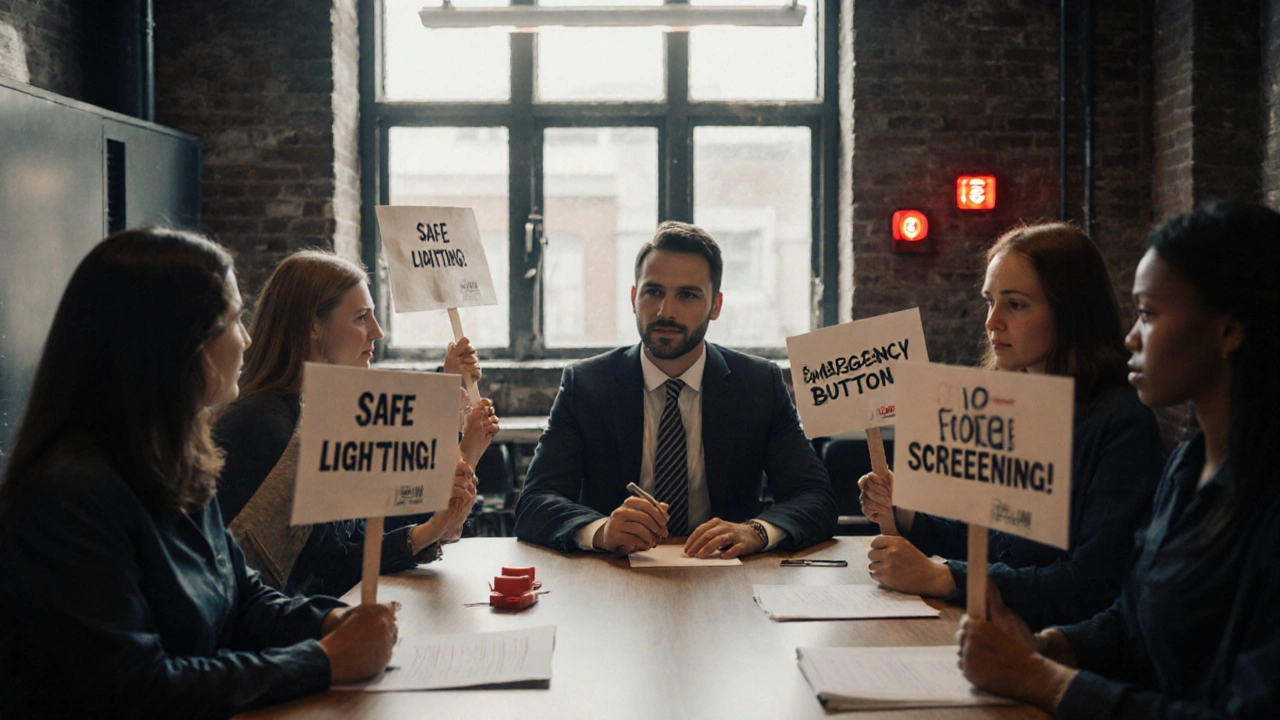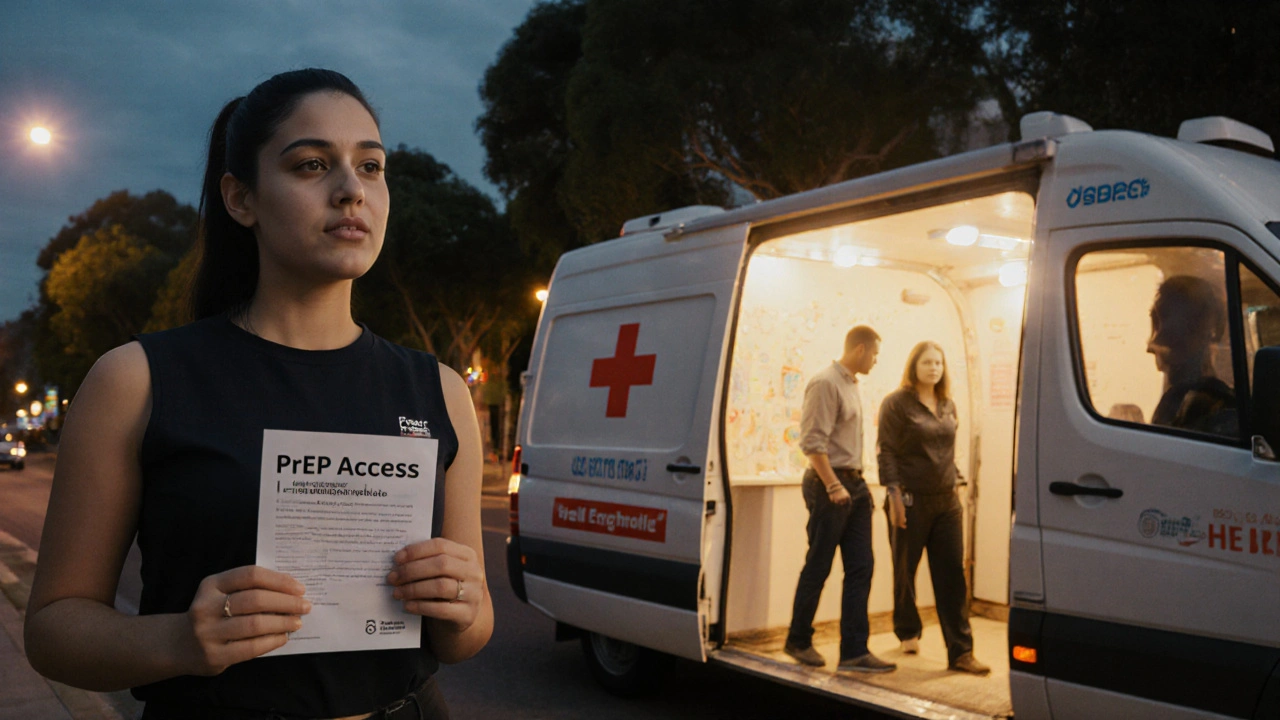When sex work is legal, it doesn’t automatically mean sex workers are safe. Many people assume that legalization equals protection, but the reality is more complicated. In places where sex work is decriminalized or regulated-like parts of Australia, New Zealand, Germany, and the Netherlands-sex workers still face dangerous gaps in health and safety. The law may say they’re workers, but too often, the system doesn’t treat them like one.
What Legal Sex Work Actually Looks Like
Legal sex work isn’t one thing. It varies wildly by country, state, even city. In New South Wales, Australia, sex work has been decriminalized since 1995. Workers can operate independently, rent rooms, and hire security. They can report violence to police without fear of arrest. In contrast, in Germany, sex work is legal but heavily regulated: workers must register, get health checks, and pay taxes-but they can’t work in private homes, and many are forced into licensed brothels that take up to 50% of their earnings.
The difference between decriminalization and legalization matters. Decriminalization removes criminal penalties. Legalization adds rules, permits, and oversight. Too often, legalization creates barriers that hurt more than help. In Nevada, USA, only licensed brothels in certain counties are legal. Outside those counties, even consenting adults face jail time. That means most sex workers there operate in the shadows, despite being in a state where some forms of sex work are technically legal.
Health Standards: Who Gets Checked, and Who Doesn’t
Many legal systems require mandatory STI testing for sex workers. In Germany and the Netherlands, workers must get tested every two weeks. On paper, that sounds protective. In practice, it’s often punitive. Workers who miss a test lose their license. Those without health insurance can’t afford the fees. Trans women and migrant workers are disproportionately affected-they’re more likely to be denied care or face discrimination at clinics.
And what about HIV prevention? In Australia, PrEP is free through Medicare. But many sex workers don’t know how to access it, or they’re too afraid to walk into a clinic where they might be judged. A 2023 study by the Kirby Institute found that only 42% of sex workers in Melbourne were regularly using PrEP, even though over 70% were at higher risk. The gap wasn’t lack of awareness-it was lack of trust.
Health services need to be designed by sex workers, not for them. Peer-led clinics in Sydney and Vancouver have shown better results: higher testing rates, lower STI transmission, and more workers reporting abuse. These clinics don’t demand ID, don’t report to authorities, and offer services during hours when workers are off duty.
Safety in Practice: From Laws to Real-Life Protection
Legal frameworks often ignore the daily risks sex workers face. In legal brothels in Germany, workers are required to use condoms-but enforcement is spotty. Clients who refuse can still be served, because the brothel owner wants to keep the money coming in. Workers who complain risk being fired or blacklisted.
In New Zealand, where decriminalization has been in place since 2003, the law says workers can refuse clients without penalty. That’s good in theory. But a 2022 survey by the New Zealand Prostitutes’ Collective found that 38% of workers had been pressured into services they refused, and only 12% felt safe reporting it. Why? Because police still treat sex work as a moral issue, not a labor issue. Workers fear being labeled ‘troubled’ or ‘exploited’-even when they’re not.
Real safety comes from three things: the right to screen clients, the right to work in safe spaces, and the right to organize. In Australia, the Sex Workers Outreach Project (SWOP) runs a safety app that lets workers share client names and ratings. It’s not perfect, but it’s one of the few tools that actually puts control in workers’ hands. In contrast, in places like France, where buying sex is illegal but selling isn’t, workers are forced to rush clients in and out of cars to avoid police. That’s not safety-it’s survival.

Why Labor Rights Are the Missing Link
Sex work is work. That’s not a slogan. It’s a legal fact in places that have moved beyond moral panic. But if you’re a sex worker, you’re rarely treated like an employee. You don’t get sick leave. You don’t get workers’ compensation. You can’t unionize in most places-even where it’s legal.
Canada’s Supreme Court struck down laws banning brothels and solicitation in 2013, ruling they violated workers’ rights to safety. But since then, new laws have made it harder to operate. Landlords can evict workers for renting to them. Banks can freeze accounts labeled as ‘high risk.’ No one enforces minimum wage laws for independent workers.
Sweden’s model-criminalizing buyers while decriminalizing sellers-sounds compassionate. But it pushes sex work further underground. Workers can’t advertise. They can’t screen clients online. They’re forced to meet strangers in parks or alleys. A 2021 study in Stockholm found that after Sweden’s law passed, sex workers reported a 40% increase in violent incidents because they couldn’t negotiate terms in advance.
True labor rights mean the same protections as any other job: safe premises, fair pay, protection from harassment, access to healthcare, and the right to collective bargaining. In the Netherlands, the union FNV has started organizing sex workers. They’ve won contracts for better lighting in windows, mandatory client screening protocols, and emergency buttons in workspaces. These aren’t luxuries. They’re basic.
The Cost of Ignoring Worker Voice
Too many policies are made by politicians, activists, or academics who’ve never worked in the industry. They talk about ‘rescuing’ or ‘eradicating’ sex work. But when you ask sex workers what they need, the answer is almost always the same: respect, safety, and autonomy.
Take the case of a worker in Perth. She runs her own online service. She pays taxes. She gets regular STI tests. She uses a verified client screening tool. She’s never been arrested. But when she tried to open a business bank account, the bank refused-saying her income was ‘high risk.’ She couldn’t get a lease because landlords feared ‘bad publicity.’ She’s legally working, but the system treats her like a criminal.
That’s not protection. That’s exclusion.

What Works: Real Solutions from Real Places
There are models that work. They share three traits:
- They’re designed by sex workers, not for them.
- They remove criminal penalties, not just replace them with bureaucracy.
- They treat sex work like any other service industry.
In New Zealand, the government funds peer-led health programs. Workers train other workers in safety, negotiation, and trauma response. The result? A 60% drop in violent incidents over ten years.
In Canada, the Decriminalize Sex Work coalition pushed for a national framework that includes: mandatory client screening requirements, access to safe housing grants, and legal protections against eviction for workers. It’s not perfect, but it’s a start.
In Australia, the ACT government funds a mobile health van that visits sex workers’ homes and workplaces. It offers testing, PrEP, mental health support, and legal advice-all without reporting to police. Participation is voluntary. Trust is high. Usage is growing.
These aren’t radical ideas. They’re practical. They’re based on evidence, not ideology.
The Bottom Line
Legal sex work doesn’t fix everything. But it’s the only starting point that actually protects people. Without labor rights, health standards are just paperwork. Without safety, laws are just words. And without listening to sex workers, every policy fails.
If you want safer sex work, stop focusing on morality. Start focusing on rights. Give workers the tools to protect themselves. Fund peer-led services. Remove barriers to banking, housing, and healthcare. Let them organize. Let them speak. And then-finally-let them work.
Is sex work legal in Australia?
Yes, but it varies by state. In New South Wales, Victoria, the ACT, and Tasmania, sex work is fully decriminalized. In Queensland and Western Australia, some activities are legal but regulated-like brothels being allowed only under strict licensing. In South Australia and the Northern Territory, only independent work is legal; brothels and advertising are banned. The laws are inconsistent, which creates confusion and risk for workers.
Do sex workers get health insurance in legal settings?
In countries with universal healthcare like Australia and New Zealand, sex workers can access public health services, including STI testing and PrEP. But they’re not automatically enrolled in workers’ compensation or occupational health programs. Many avoid clinics due to stigma. Peer-led health services have been shown to improve access because they’re non-judgmental and tailored to workers’ schedules and needs.
Can sex workers unionize in legal countries?
Yes, but it’s rare. In the Netherlands, the union FNV has organized sex workers since 2018 and negotiated workplace safety agreements. In Canada, the Sex Workers United Front is pushing for collective bargaining rights. In Australia, unions have been hesitant to formally recognize sex work, but some local branches now support worker-led safety initiatives. Legal status doesn’t guarantee labor rights-those have to be fought for.
Why are mandatory health checks controversial?
Mandatory testing treats sex workers like a health threat, not people. It’s often enforced unevenly-targeting women, trans people, and migrants more than men. It creates a false sense of security, because clients aren’t tested. It also discourages people from working if they can’t afford tests or fear discrimination. Evidence shows voluntary, accessible, and stigma-free testing leads to better outcomes than forced programs.
What’s the difference between decriminalization and legalization?
Decriminalization removes criminal penalties for sex work, treating it like any other job. Legalization means the government controls it through rules-licenses, registration, zoning, inspections. Legalization often creates barriers: you need permits, pay fees, follow strict hours. Decriminalization gives workers more freedom and safety. New Zealand’s model is decriminalization. Germany’s is legalization. Studies show decriminalization leads to fewer violent incidents and better health outcomes.
Do legal sex work laws reduce human trafficking?
There’s no strong evidence that legalizing or criminalizing sex work reduces trafficking. In fact, when sex work is pushed underground-like in Sweden or France-it becomes harder to identify trafficking because workers fear reporting. The best way to combat trafficking is through labor protections, immigration rights, and economic support for vulnerable people-not by banning sex work. Trafficking is a crime of exploitation; it doesn’t disappear because selling sex is illegal.
